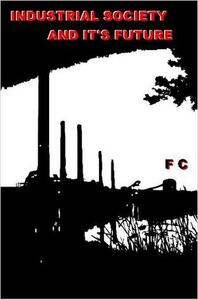Take a photo of a barcode or cover
challenging
emotional
hopeful
informative
inspiring
reflective
tense
fast-paced
challenging
informative
medium-paced
You truly can tell that this book wasn’t written by a Sociologist. The main issue within this book are true statements and assumptions, but many fallacies after that. The author constantly repeats „how bad the industry is - that people lost their autonomy and are captured in a system of corps and work“ The author criticised Capitalism and capitalist aspects (such as corps and industries), but his final conclusion is always „yeah it’s the fault of technology we must get rid of technology because technology is evil and it’s not the fault of capitalism“. I kind of agree on psychological and physical harm effects while using technology, but the fault of suffering in our world is not the fault of technology by itself, it’s the fault of capitalism. The author is also not able to link economy and industrialisation. He talks about technology, politics, economy and capitalism like those aspects aren’t linked to each other. Indeed, they are. The part which made me laugh the most was when the author claimed we need a revolution (agree on that) but said: „This revolution will be against technology and industry, not against economy or politics.“ First of all, industry and economy are deeply linked to each other and have created a symbiosis. It’s not able to just attack the industry without attacking the economy. Second of all, economy is politics. Also, the author is constantly raging about leftist. Back then, the understanding of leftism was different from now - still though, he declares leftists as an enemy, while he failed to focus the real enemy - facists who rule the economy, using his hatred technology and causing suffer in the world. While he mentions the leftists over and over again, he doesn’t focus conservatives in that same range. In the end, the author had some good points and is able to see problems within the world, although he totally failed to connect the real source of those issues (it’s not technology, it’s capitalism). I agree that the use of technology in our current society escalated and feels dystopian in some ways, but reading this manifesto felt like reading the homework of a child who is able to make a good analysis but totally fails to see everything on a bigger scale. Also, those constant rages about technology - ignoring other important facts - were exhausting. This whole manifesto reads itself like the brotherhood on steel wrote it while they were on crack.
challenging
dark
reflective
fast-paced
Points were made. Not all of them were correct.
challenging
slow-paced
In paragraph 208, Kaczynski writes "Holy Robots!" That was the only good part of this whole book.
challenging
dark
reflective
slow-paced
Aside from the obvious connections to our dependency on technology and some poignant points about man’s search for purpose, this was quite a painful read.
I don’t know why I read this, really. It was short.
TK has a lot of broad critiques and makes some really interesting points, but they are often interrupted by strange rants about leftism (some of them are interesting and valid but as a whole they are unhinged). His take on “power process” and “surrogate activities”?? Idk, things besides physical survival can be incredibly fulfilling - seems like one of his main premises is just super subjective.
I’m specifically interested in his theory that technological advancement is completely inevitable under capitalism, and that every advancement will eventually boomerang towards civilian/worker control. Also, that reform of technology or “progress” is doomed to fail & people opposed to it must be revolutionaries - to TK, even reforms such as environmental protections are useless without revolution. I ultimately think he’s right that without serious revolt, humanity is cooked in the long (short) run.
There are a lot of reviews of this book on Goodreads that summarize his views towards revolution and inevitable societal collapse much better, but a lot of what he says is interesting and almost surely true. There are absolutely better sources and analyses of a lot of the topics that TK talks about, which I think I’ll seek out.
At the end of the day it’s very obvious that this dude was quite lonely and isolated, to the point that he couldn’t believe that there is anyone in modern society who feels truly content and happy with their lives. After learning about his history as a Harvard “genius” and a person with intense unrealized gender dysphoria (he was very close to exploring being a woman), this manifesto feels tragic and sad.
Edit: It’s capitalism. The problem is capitalism, not technology or leftism. He missed the point and his killings were misguided at best.
TK has a lot of broad critiques and makes some really interesting points, but they are often interrupted by strange rants about leftism (some of them are interesting and valid but as a whole they are unhinged). His take on “power process” and “surrogate activities”?? Idk, things besides physical survival can be incredibly fulfilling - seems like one of his main premises is just super subjective.
I’m specifically interested in his theory that technological advancement is completely inevitable under capitalism, and that every advancement will eventually boomerang towards civilian/worker control. Also, that reform of technology or “progress” is doomed to fail & people opposed to it must be revolutionaries - to TK, even reforms such as environmental protections are useless without revolution. I ultimately think he’s right that without serious revolt, humanity is cooked in the long (short) run.
There are a lot of reviews of this book on Goodreads that summarize his views towards revolution and inevitable societal collapse much better, but a lot of what he says is interesting and almost surely true. There are absolutely better sources and analyses of a lot of the topics that TK talks about, which I think I’ll seek out.
At the end of the day it’s very obvious that this dude was quite lonely and isolated, to the point that he couldn’t believe that there is anyone in modern society who feels truly content and happy with their lives. After learning about his history as a Harvard “genius” and a person with intense unrealized gender dysphoria (he was very close to exploring being a woman), this manifesto feels tragic and sad.
Edit: It’s capitalism. The problem is capitalism, not technology or leftism. He missed the point and his killings were misguided at best.
Gave absolutely no good arguments on why technology wouldn't eventually return. Eloquently written though.
not the ravings of a lunatic, which seems to be the dominant narrative surrounding his actions, but carefully reasoned (if sometimes incorrectly) and impassioned. kept wondering what it says about me that I agree with many of his points; at the same time I think about his refusal to accept the insanity plea his brother pushed for, and how the label of schizophrenic had (also incorrectly, per TK) dismissed his valid and genuine critiques of the effects of capitalism and industrialization. which is something he predicts and writes about in his manifesto. my roommate accused me of some out of pocket stuff when I was talking about reading this, and I couldn’t help but think that TK had also correctly predicted this interaction in the sections about critiquing leftism. at the same time, his complete dismissal and denigration of my interest is hilarious because there is so much that TK says that my roommate has expressed, but much less eloquently. there’s something to be learned from everything, even if you don’t agree with it. This is an interesting work of philosophy. Please don’t put me on an FBI watch list, Joe Biden. I’m already technically considered a domestic terrorist as of this week.
Theodore John Kaczynski, also known as the Unabomber, is an American domestic terrorist and former mathematics professor. He abandoned his academic career and moved to the woods to obtain a primitive life away from society. Between 1978-1995, he killed three people and injured 23 during his nationwide bombing campaign. He targeted places he felt believed in the advancement of modern technology which ultimately would leave to the destruction of the environment.
•••••
Okay…so I know y’all like to tussle so before I say anything let me say that I do not agree with him bombing establishments. He could’ve went a completely different route, but he was spot on in some of his visions for the future and how technology is crippling the youth. I couldn’t imagine living in a pre-industrialized world, but I can definitely see what he means about more advanced technology causing social disruption and psychological suffering. How many friends have you told you “I’m going to take a break from social media?” Really think about it. How many times as an individual have you found yourself trying to measure up to the next person after scrolling through Instagram? For this book to have been written about 20 years ago, it’s relevant and spot on. There are some parts that it’s a little obvious. I would easily assume that 20 years from now there will be advancements because that’s how it supposed to be. But then there were parts that I just kind of scratched my head because let’s be real, he wasn’t all there. We’ve read how technology has served for the greater good as well as the bad. We’ve seen how technology has the ability to completely remove true human interaction. I highly recommend this read and I just want to reiterate again, I do NOT agree with his tactics to kill.
•••••
Okay…so I know y’all like to tussle so before I say anything let me say that I do not agree with him bombing establishments. He could’ve went a completely different route, but he was spot on in some of his visions for the future and how technology is crippling the youth. I couldn’t imagine living in a pre-industrialized world, but I can definitely see what he means about more advanced technology causing social disruption and psychological suffering. How many friends have you told you “I’m going to take a break from social media?” Really think about it. How many times as an individual have you found yourself trying to measure up to the next person after scrolling through Instagram? For this book to have been written about 20 years ago, it’s relevant and spot on. There are some parts that it’s a little obvious. I would easily assume that 20 years from now there will be advancements because that’s how it supposed to be. But then there were parts that I just kind of scratched my head because let’s be real, he wasn’t all there. We’ve read how technology has served for the greater good as well as the bad. We’ve seen how technology has the ability to completely remove true human interaction. I highly recommend this read and I just want to reiterate again, I do NOT agree with his tactics to kill.






